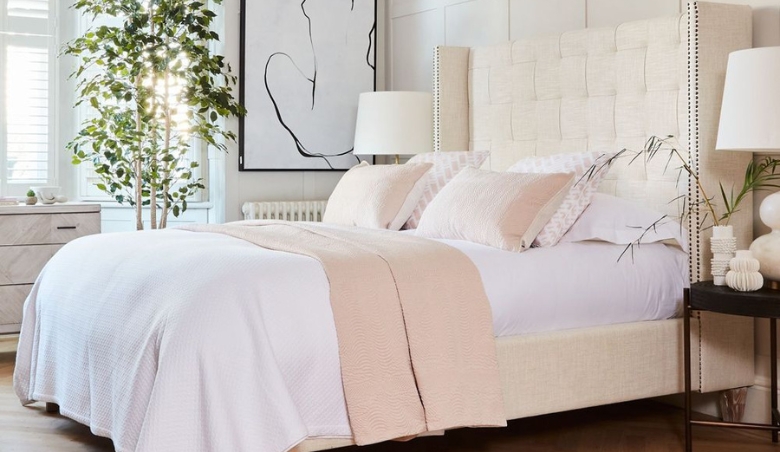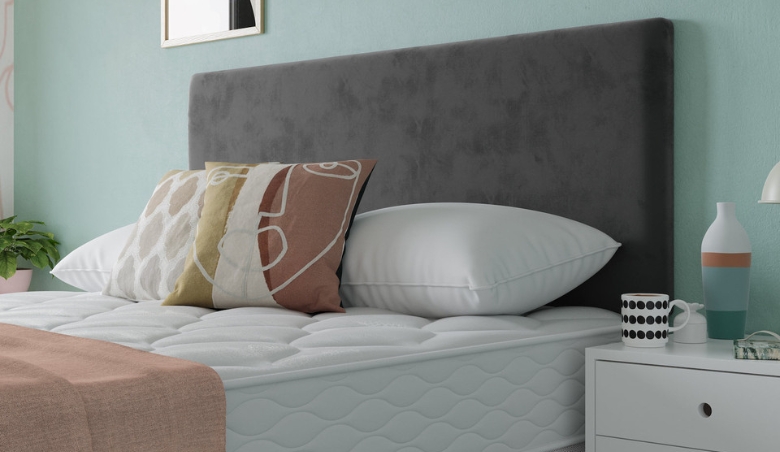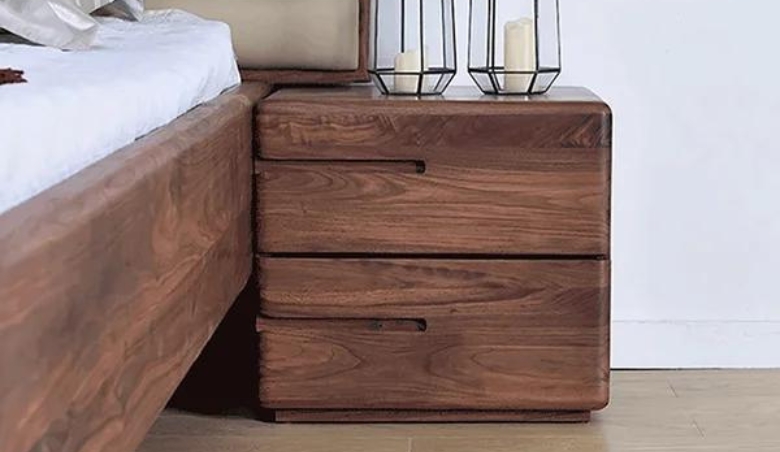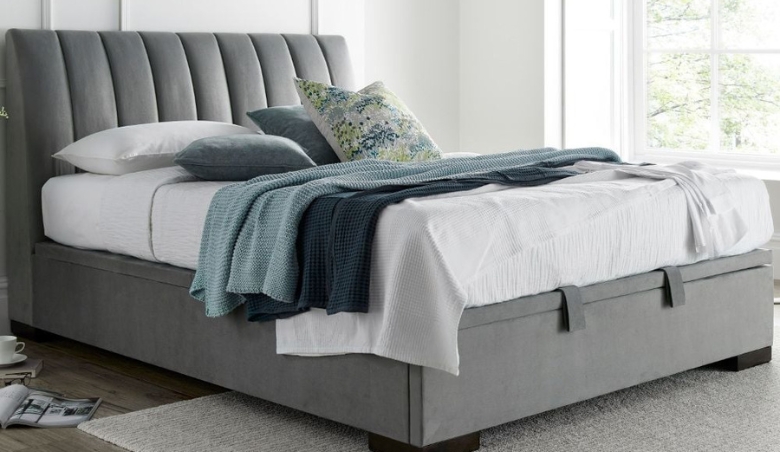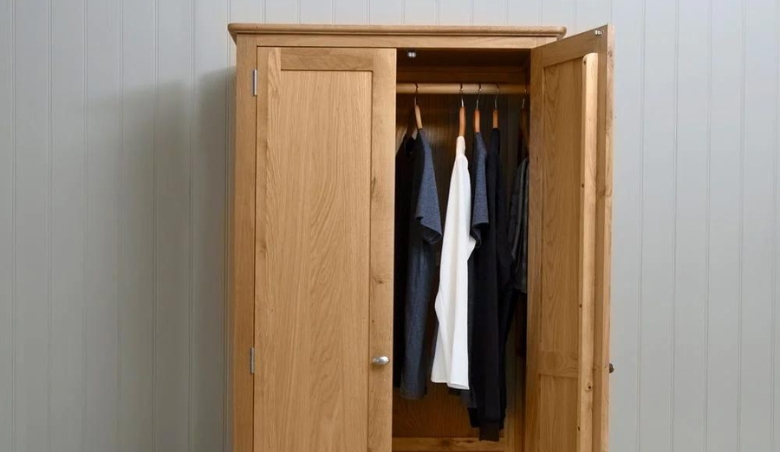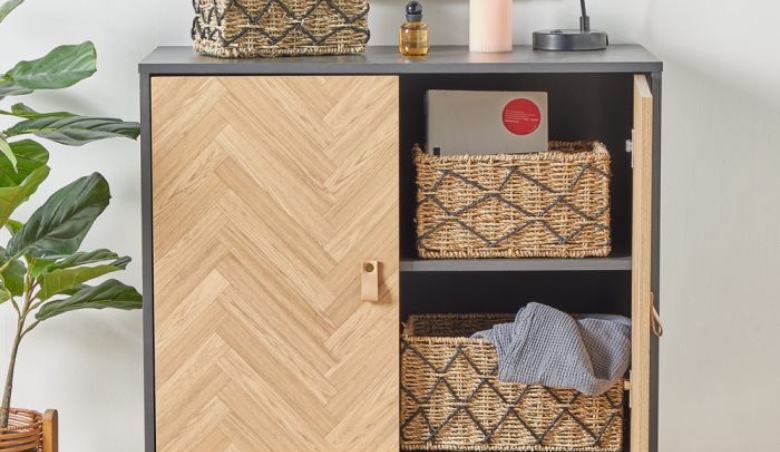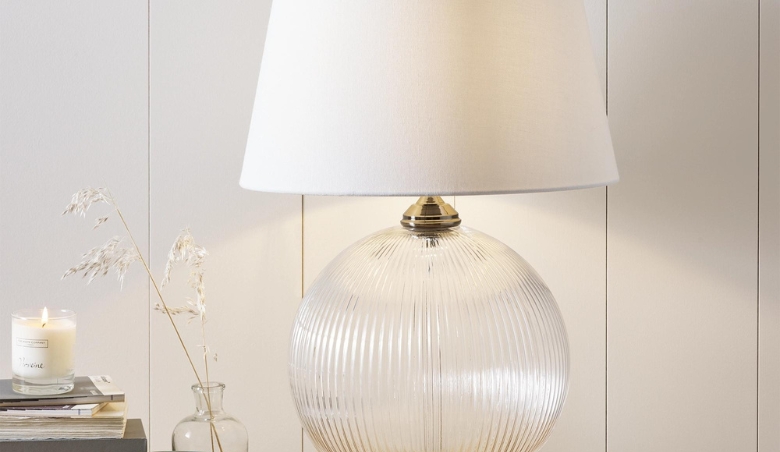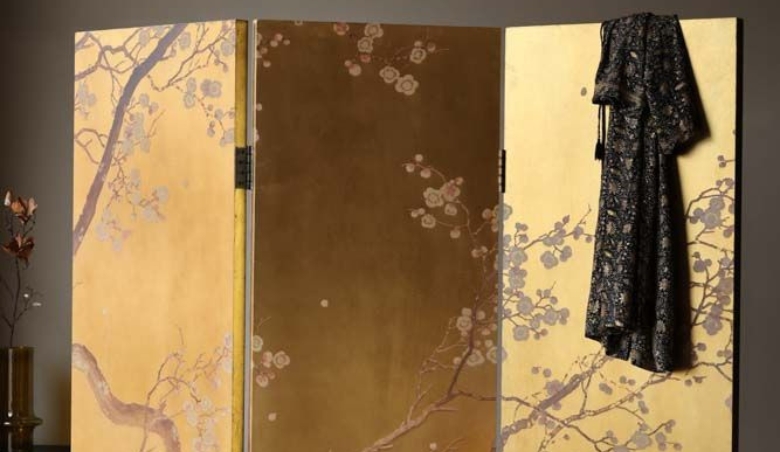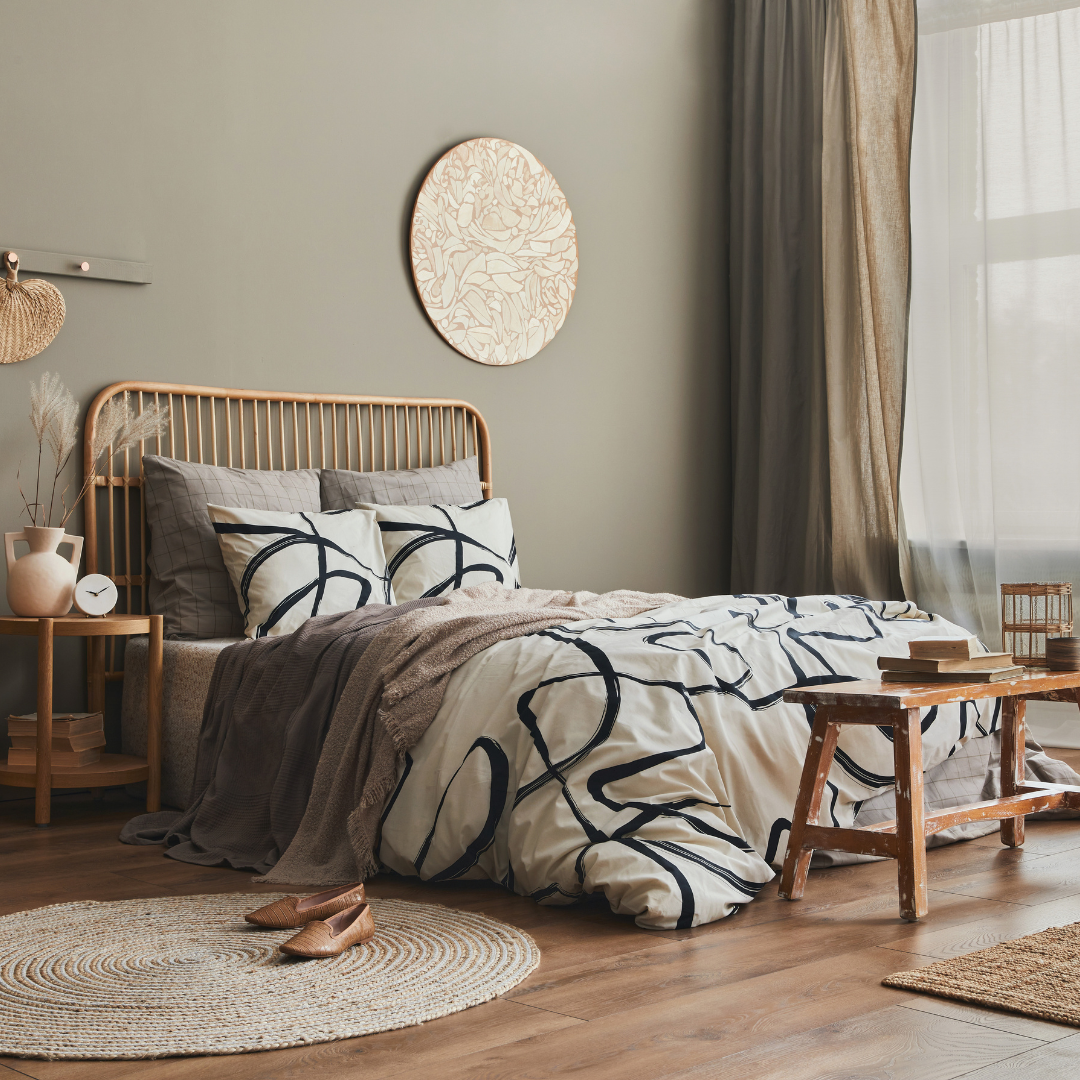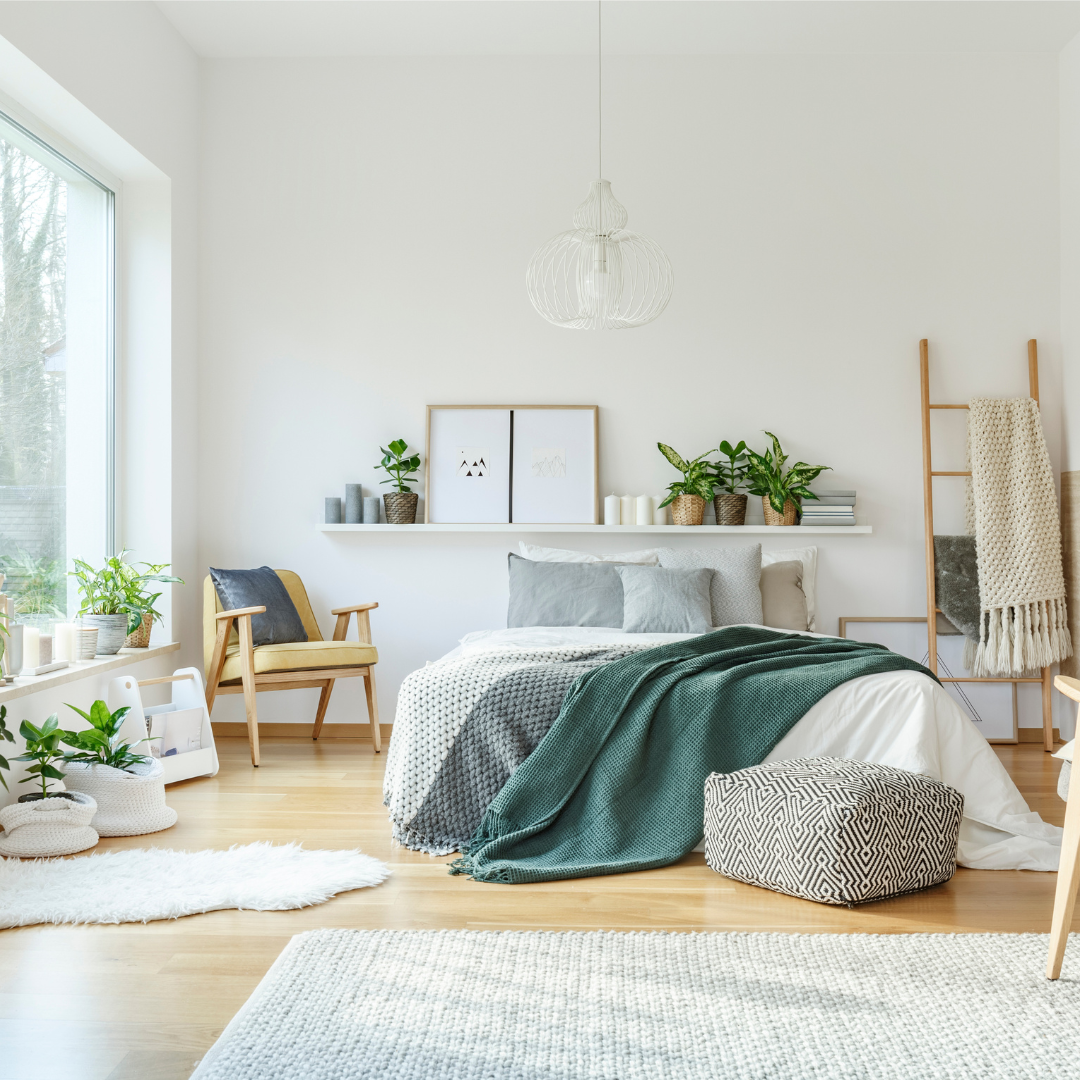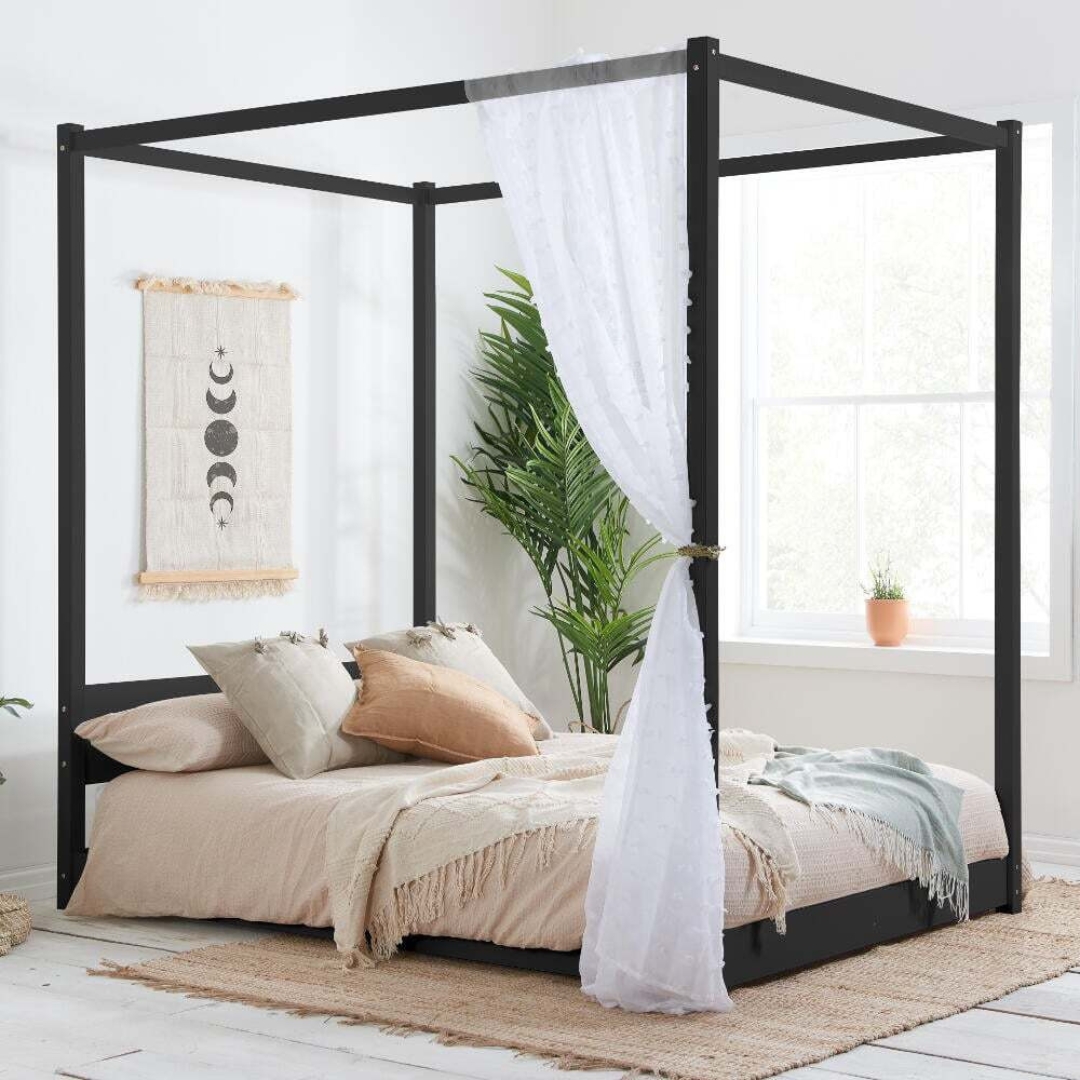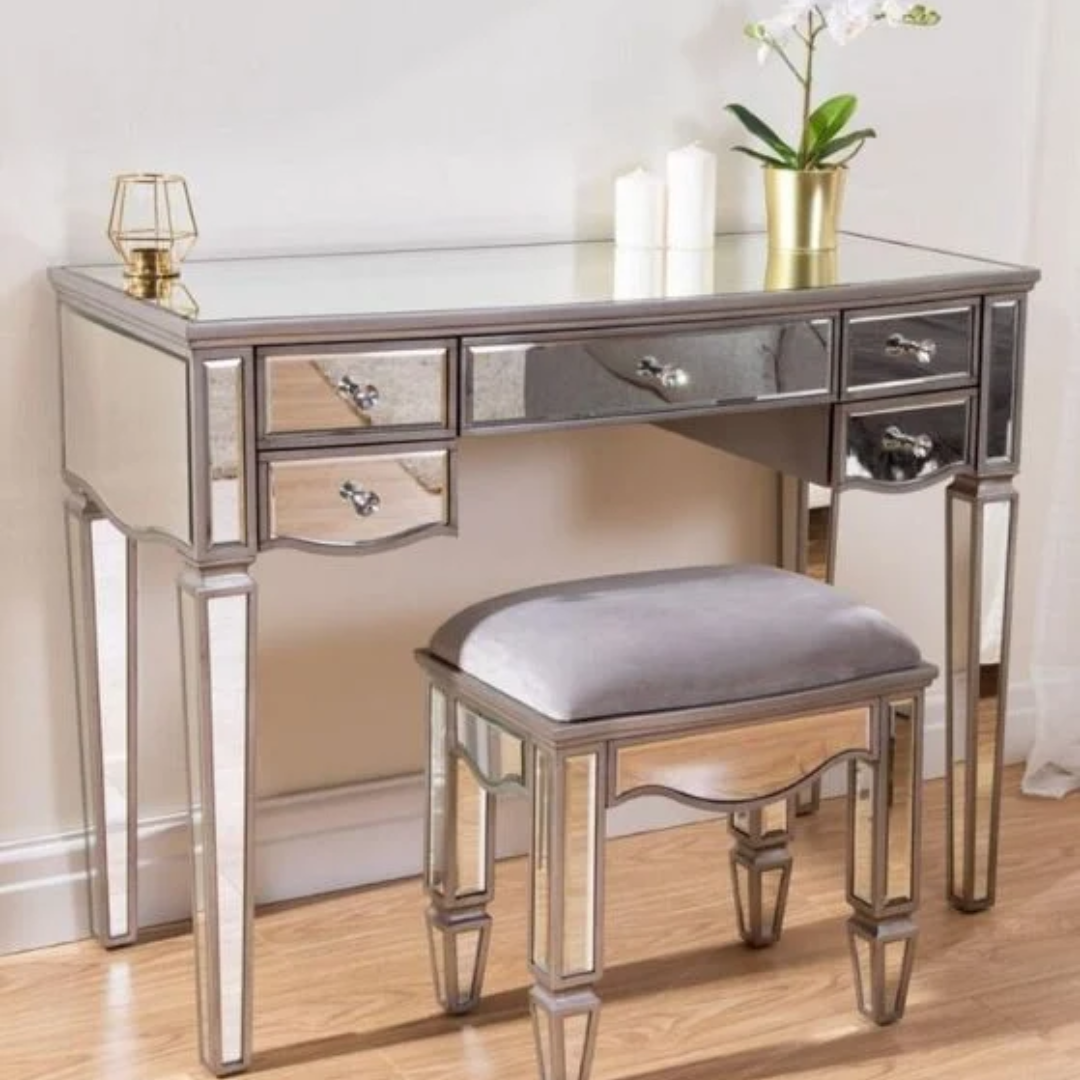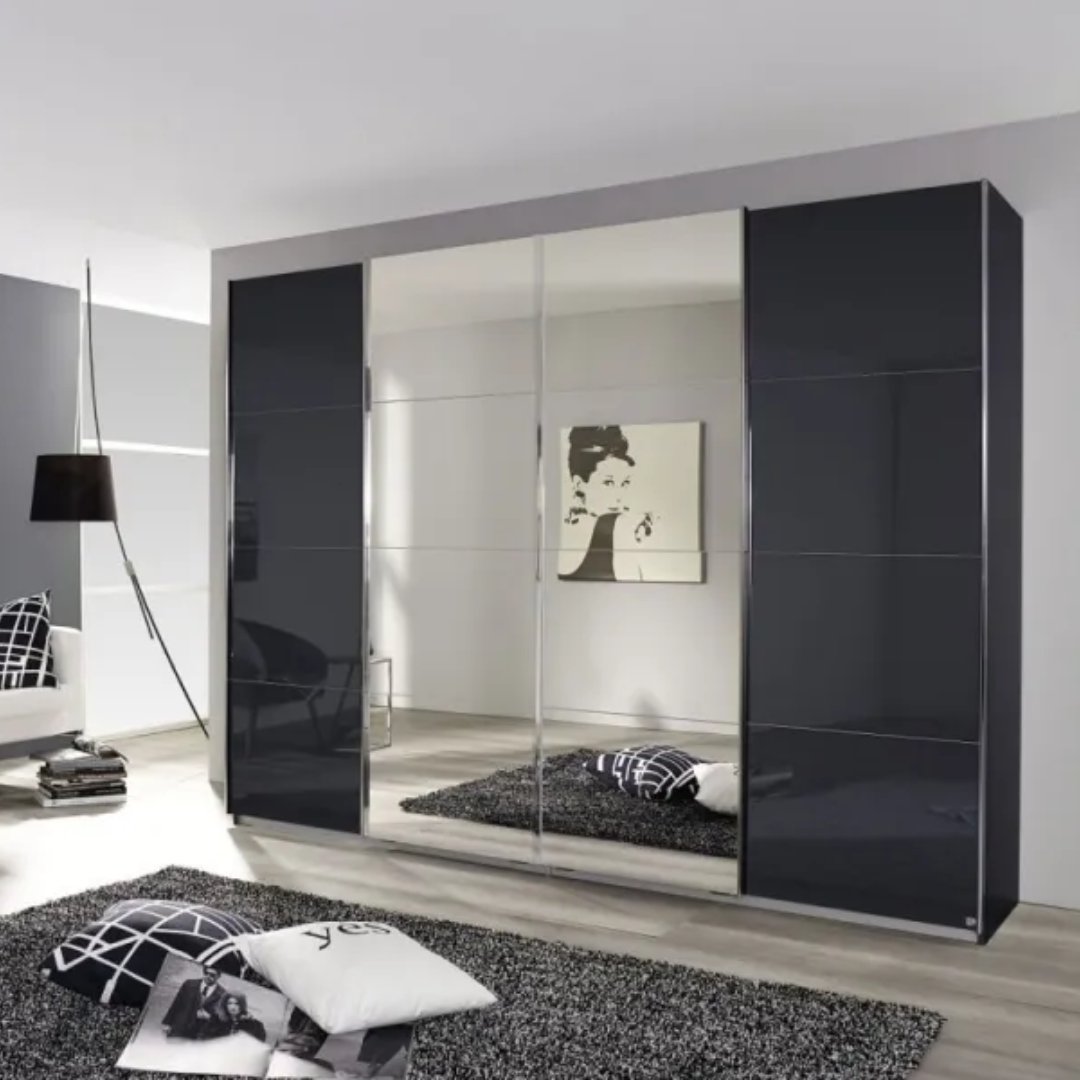Suzanne Roynon is an interiors therapy expert, feng shui consultant, freelance writer and award-winning author. She started her company InteriorsTherapy.com in 2015 and now works with clients across the UK and internationally in addition to writing for Homes & Gardens, interiors magazines and newspapers and is a BBC guest expert. We are thrilled to have Suzanne as a guest blogger for us. This month, Suzanne turns her attention to the ways in which bedrooms can work against their occupants and what to do about it!
There is so much fascinating information to share about the impact of Feng Shui and Interiors Therapy on homes regardless of size, location or the status of their owner! For today though, I’d like to focus on bringing balance and harmony to a bedroom and explain why it’s important whether you sleep alone or in company.
The bedroom should be a place of rest, romance and relaxation, but in so many homes it also has to be used as a workspace, gym, storage unit, laundry and for multiple other purposes unconnected with achieving quality sleep.
For this reason, it’s so important to ensure the basics of a nurturing, healthy bedroom are in place.
1. A supportive bed
There are two strands to this point, the first one is all about comfort and wellbeing. The average mattress will be saggy after 8 years of regular use, and yet in so many homes, the bed is well past it’s best. Occupants potentially have back pain and struggle to sleep but are oblivious to the age of the bed, they think its just something they have to live with. That’s nonsense! Choose a replacement which will suit your anticipated requirements for the next eight years of your life and enjoy the zzzzzzz.
The second point I’d love to share is about changing the bed, or as a minimum the mattress, after the break-down of a relationship. Sharing a bed is deeply intimate and it becomes charged with emotional energy as well as absorbing the DNA of each partner in the form of skin cells, sweat and yes, that too! So when a relationship ends and it’s time to move on, replacing the bed should be high on the list of priorities for anyone who prefers not to sleep in a bed infused with the energy of their ex.
2. A firm, comfortable headboard
Feng Shui recommends choosing a headboard or bedhead made of wood because it’s strong and psychologically protects the neck and head during sleep. That’s all very well, but wood needs cushioning to sit up against and can be bruising if you toss and turn at night.
For this reason, I’d always choose a strong, wall mounted, padded headboard to give me maximum comfort and protection as I sleep. Being wall-mounted has the added bonus of being the quieter solution, especially in shared homes.
3. Balance the nightstands
I mentioned balance and harmony at the beginning of this blog, and this is key for the bed and furniture around it. Matching nightstands, whether you choose simple tables, drawers or cupboards add a sense of symmetry to the bed which will help your subconscious mind relax.
In homes with an imbalanced arrangement, there tends to be a very dominant partner. Where homes don’t have any nightstands, we find a sense of insecurity or something missing – perhaps in the relationship, or, depending on the Feng Shui in that part of the house, an instability in another part of the occupant’s lifestyle.
4. Curate the under-bed space
In an ideal world, the space under the bed would be kept clear and clean to allow air and ‘chi’ (life force energy) to flow freely around the room. Let’s be honest though, in homes and apartments across the UK, storage is at a premium and under the bed becomes valuable for hiding anything and everything.
So let’s take a step back and acknowledge that having too much stuff under the bed will interfere with quality sleep and can also, from a Feng Shui perspective, energetically mess with your mind.
What is it ‘safe’ to keep under the bed? Out-of-season clothes, bedlinen, spare duvets, towels are your best bet. These are generally neutral and won’t compromise sleep.
The things to avoid are; books, paperwork, shoes and boots, tech and sports equipment, toys, photographs, mementoes, especially of a previous relationship and anything which stimulates your thought processes. Trust me on this – remove anything like this from under your bed and you will sleep better.
5. Declutter
While we’re under the bed, let’s discuss the other big problem in many homes –CLUTTER!
You’ll hear clutter described in a multitude of ways, but what it boils down to is evidence of procrastination, an inability to make decisions, or just having plenty of space to store it, which means there’s no need to deal with the emotional or illogical attachment to stuff!
When I wrote ‘Welcome Home, How Stuff Makes or Breaks your Relationship’ I wanted to change the perspective on what constitutes clutter, because so many people keep things they don’t use, need or love without asking themselves why.
Clutter tends to be kept for one of five reasons, Habit, Fear, Guilt, Confusion and Spite.
This is where Interiors Therapy is poles apart from ‘a bit of decluttering’ and its why people who use the five-step process develop a very low tolerance for having any clutter in their homes because they are just so much happier living without it!
It’s not easy to do a deep-declutter alone, and it can be even harder when well-meaning friends or relatives offer to help – because then you have to deal with their attachment to possessions too! If you’re struggling, pick up a copy of ‘Welcome Home’ and you’ll find all the tools and moral support you need to change your thinking so you make clutter a thing of the past.
6. Fabulous storage
Once you know that everything in your room has justified its place in your space, you’ll know exactly how much storage you need to keep everything neat, accessible and organised.
Keep the tops of cupboards, wardrobes and drawer units as clear as you can. This makes wiping up the inevitable dust easy and will be both pleasing to the eye and supportive of your subconscious mind which, trust me, really struggles with chaos and disorder.
I love using drawer dividers, attractive boxes, and baskets and making my bedroom work hard for me whilst remaining a beautiful, welcoming place to spend quality time.
7. Light and dark
The brain needs to feel calm and at ease in order to provide you with deep, healthy sleep. This is best achieved in a room where the lighting is managed well.
In the evening, use muted bulbs, avoiding blue light, to prepare for sleep. During the day, a brighter lighting scheme will support daily activities, makeup application, and if working in the bedroom is essential, will help avoid eyestrain.
Invest in really great blackout curtains or blinds unless you like to wake up at dawn. This is especially important where streetlights and other sources of light pollution make it difficult for your brain to fully switch off because this plays havoc with your circadian rhythms, the 24-hour process which enables your body to carry out essential functions and maintain good health.
8. Working in the bedroom
For so many of us, remote working means a desk in the bedroom and juggling the two uses of limited space to the best of our ability.
Take a moment at the end of every day to clear the desk surface, put laptops and paperwork away out of sight and switch off and cover screens which have to remain in situ.
If space allows, choose a room divider to separate the work and sleep zones, and wherever you place your desk, be sure you can see the bedroom door in your direct or peripheral vision to support wellbeing and prevent a feeling of ‘things creeping up on you’ or overwhelm.
Regardless of your situation, it’s so important to feel cherished in life, and that starts with taking care of yourself. By taking these simple steps, it’s possible to create a happier and healthier bedroom for rest, romance, and relaxation.
For more interior trends inspiration, follow ufurnish.com on Instagram and Pinterest, or to search furniture retailers across the market, simply click here.
If you’d like expert Interiors Therapy or Feng Shui advice specific to your bedroom, Suzanne offers a 30 minute ‘Bedroom Booster’ video call.
www.interiorstherapy.com

